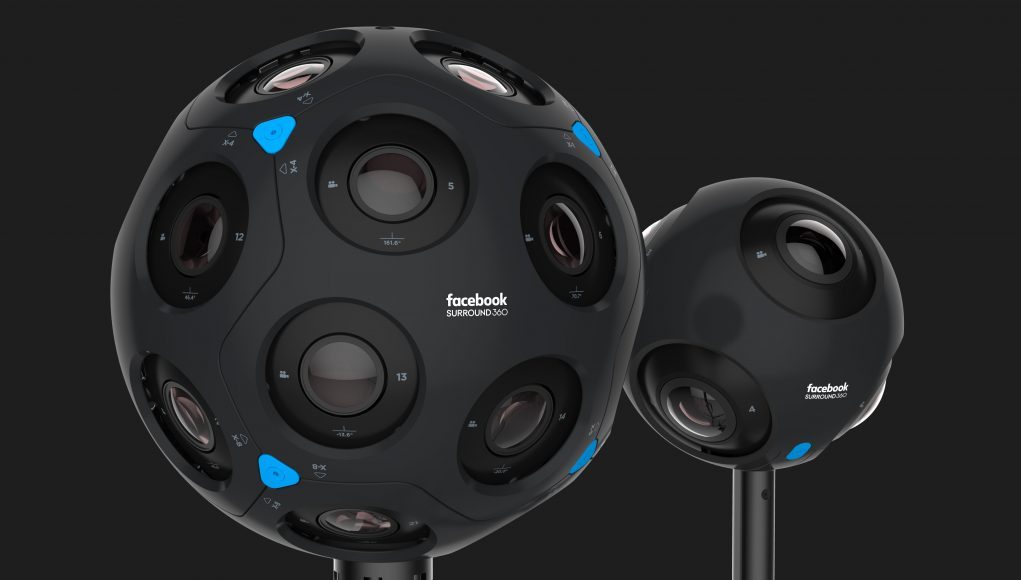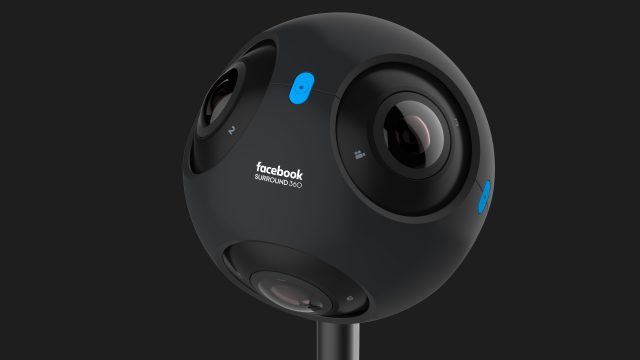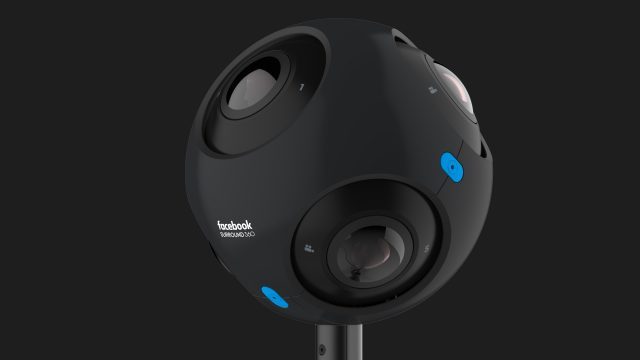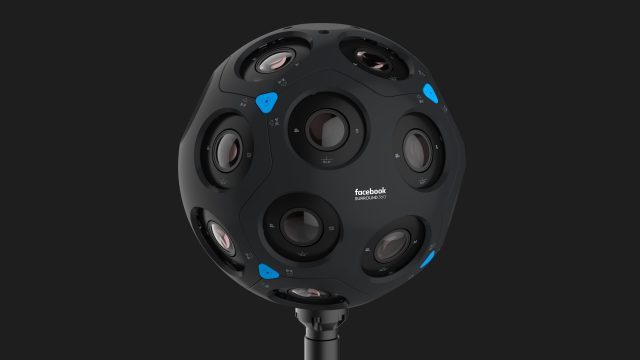Facebook today announced two new additions to the Surround360 hardware initiative that are poised to make 360 video more immersive. Unveiled at the company’s yearly developer conference, F8, the so-called x24 and x6 cameras are said to capture 360 video with depth information, giving captured video six degrees of freedom (6DoF). This means you can not only move your vantage point up/down, left/right like before, but now forwards/backwards, pitch, yaw and roll are possible while in a 360 video.
Even the best stereoscopic 360 videos can’t provide this sort of movement currently, so the possibility of a small, robust camera(s) that can, is pretty exciting—because let’s face it, when you’re used to engaging with the digital world thanks to the immersive, positional tracking capabilities of the Oculus Rift, HTC Vive, or PSVR, you really notice when it’s gone. Check out the gif below to see exactly what that means.
[gfycat data_id=”UnkemptFittingCalf”]
Originally announced at last year’s F8 as an open source hardware platform and rendering pipeline for 3D 360 video for VR that anyone could construct or iterate on, Facebook is taking their new Surround360 reference designs in a different direction. While Facebook doesn’t plan on selling the 360 6DoF cameras directly, the company will be licensing the x24 and x6 designs—named to indicate the number of on-board sensors—to a select number of commercial partners. Facebook says a product should emerge sometime later this year.
The rigs are smaller than the original Surround360, now dubbed Surround360 ‘Open Edition’, but are critically smaller than rigs capable of volumetric capture like unwieldy rigs like HypeVR’s high-end camera/LIDAR camera.
Specs are still thin on the ground, but the x24 appears to be around 10 inches in diameter (257mm at its widest, 252mm at its thinnest), and is said to capture full RGB and depth at every pixel in each of the 24 cameras. It is also said to oversample 4x at every point in full 360, providing “best in-class image quality and full-resolution 6DoF point clouds.”
The x6, although not specified, looks to be about half the diameter at 5 inches, and is said to oversample by 3x. No pricing info has been made public for either camera.
Facebook says depth information is captured for every frame in the video, and because it outputs in 3D, video can be feed into existing visual effects (VFX) software tools to create a mashup of live-action capture and computer-generated imagery (CGI). Take a look at the gif below for an idea of what’s possible.
[gfycat data_id=”FearfulUnfitCowbird”]
Creating good-looking 6DoF 360 video is still an imperfect process though, so Facebook is also partnering with a number of post-production companies and VFX studios to help build out workflows and toolchains. Adobe, Otoy, Foundry, Mettle, DXO, Here Be Dragons, Framestore, Magnopus, and The Mill are all working with Facebook in some capacity.
“We’ve designed with Facebook an amazing cloud rendering and publishing solution to make x24’s interactive volumetric video within reach for all,” said Jules Urbach, Founder & CEO Otoy. “Our ORBX ecosystem opens up 28 different authoring and editing tools and interactive light field streaming across all major platforms and browsers. It’s a simple and powerful solution this game-changing camera deserves.”
Keep an eye on this article, as we’ll be updating information as it comes in.











